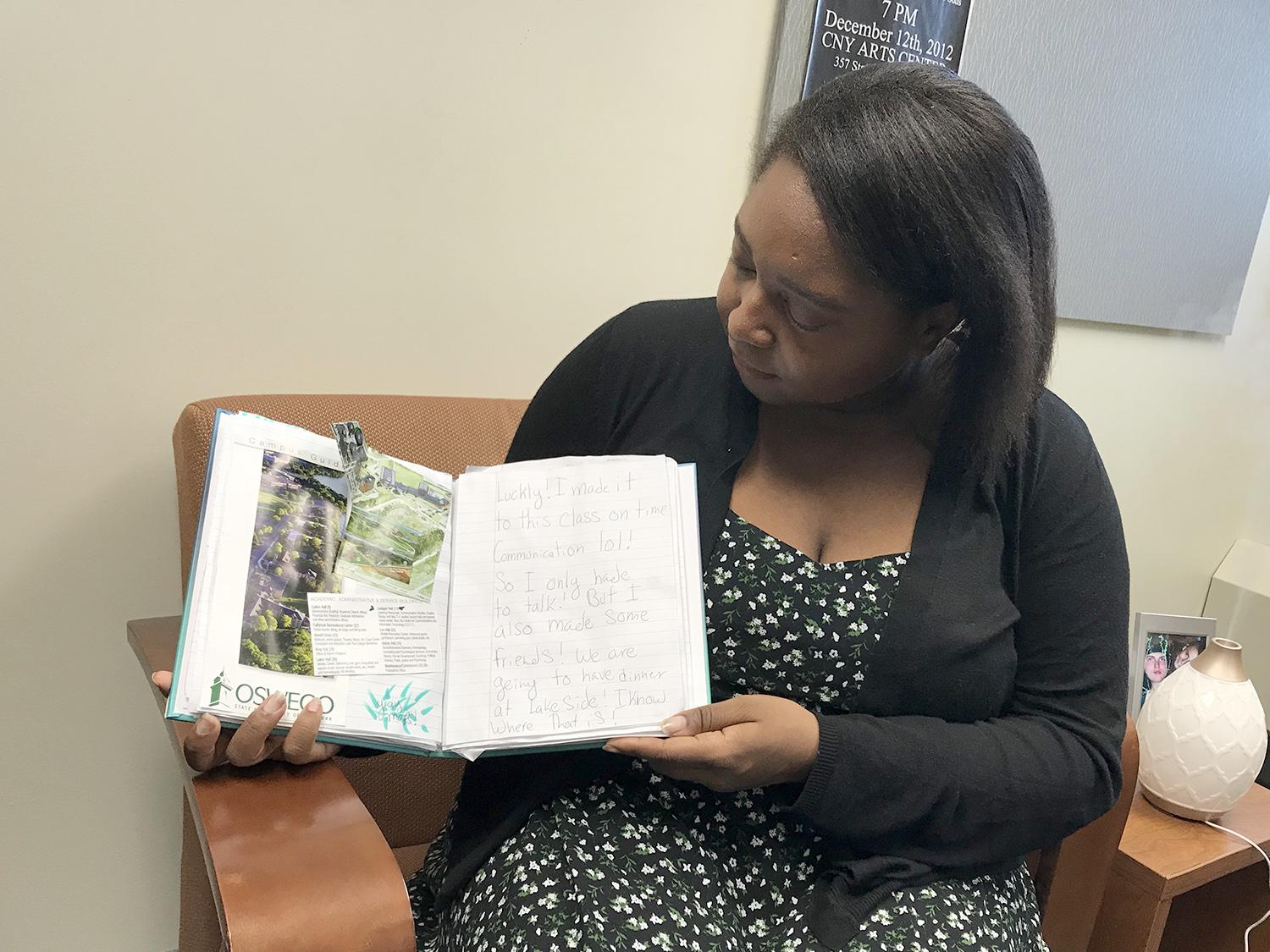Providing a resource -- Oreal Vernon, a senior broadcasting major at SUNY Oswego, created a book that provides a resource for educators on what she and an estimated 43.5 million other Americans with dyslexia face on a daily basis.
SUNY Oswego senior broadcasting major Oreal Vernon used one of her classes to help faculty and administrators understand what she and an estimated 43.5 million Americans deal with daily.
October’s status as Dyslexia Awareness Month helps many find out more about this learning disability, but Vernon had a more direct opportunity to provide education about how she and other dyslexics see the world.
“We had to create a book in an alternative format for our final project” in an English class taught by Fiona Coll, “Genre History Theory,” Vernon said. “I really wanted to explore the concept of an experience -- maybe something most readers won’t experience.”
Many people think of dyslexia as merely transposing letters, but it is much more complicated than that, varies greatly from person to person and pervades activities people would not regularly think of, she noted.
“I write throughout the book the way I actually write things,” Vernon said, so the journal includes misspelled words, crossed out and rewritten words and a look at how her unedited writings would appear -- also showing the effort required to refine her work for proper submission in classes.
Two friends, Jacklyn Lopez and Gage Slachciak, helped her gather materials to make the book more interactive.
In addition to being dyslexic, Vernon said she also is dyscalculic -- or has difficulty learning and understanding numbers -- so she included a page showing a jumble of numbers to depict how somebody with dyscalculia might first encounter math problems. That page uses texture, as Vernon said the sense of feel is a helpful learning aid.
“I showed it to a class full of education students, which is cool,” Vernon said. “It’s a way of saying: This is a firsthand experience of what your kids face.”
Vernon said the book helps people understand the struggle she and others with learning disabilities have to overcome even with the best preparation. “You get frustrated and you get overwhelmed and you cry sometimes,” she said.
Supportive environment
At SUNY Oswego, Vernon found ready support from Starr Wheeler, director of the Accessibility Resources Office, and the office’s staff dedicated to helping campus community members receive legally required accommodations, additional resources and ongoing encouragement.
“Starr was so helpful,” Vernon recalled. “She just said, ‘How can we help you succeed on this campus?’”
For Vernon, accommodation includes getting double time for tests and quizzes as well as technical support like screen readers and software … but people are always an important help.
“Friends who will help you when you are a dyslexic are always wonderful,” Vernon said, whether with finding buildings or reading signs quicker than she can. Encountering many faculty who understand that she wants to excel and can work with her has made a difference as well.
“All the Oswego staff has been really helpful,” Vernon said. “They want you to succeed and do the best you can. They don’t want to coddle you, but they do want to help you.”
Her dyslexia was diagnosed early in elementary school, and she eventually made it into the Lowell School in Whitestone, Queens, which provides a structured learning environment for children in elementary through high school.
From there, she started at City University of New York College, but a school far from home on a Great Lake still appealed to her.
“This is my dream school,” she said of SUNY Oswego. “I kept saying: ‘They have a great broadcasting school. I have to go.’”
Vernon is now a Deans’ List student who is the indie music director at campus radio station WNYO and vice president of the relatively new Baking Club. Growing up, Vernon had people tell her she wouldn’t finish high school, let alone attend college, so she hopes sharing her story will encourage others.
“I feel like I can do it, anybody can do it,” Vernon said. “You just need to put in the work and have faith in yourself.”




